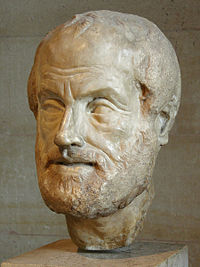
Aristotle is often referred to as the father of pre-scientific pscyhology. In his text De Amina, Aristotle defines his psychological theory, which he labels Holymorphism. In this theory, Aristotle claims, in contrast to Plato, that the mind and body are both merely facets of the same being; the mind being a function of the body just as the senses such as sight and touch are functions of the body. Aristotle posits the intellect as something similar to the modern conception of the soul, the intellect is our actuality and is the only part of us which is immortal and persists after death.
Aristotle's major contribution to the psychological tradition, however, is not in his psychological theory itself. Rather it is in his epistemic viewpoint; Aristotelean Empiricism (or just empiricism). The main premise of which being that knowledge is grounded not in authority, nor tradition (of which the Greeks were rich), nor in reason alone. Rather, Aristotle finds that knowledge is grounded in experience and observation. Experience is primary to all other sources of knowledge, and in conflicting cases, reason must be adapted so as to fit observed phenomena. This way of thinking is the bases for the scientific tradition of western culture.
The Following is a link to Aristoltle's writing, De Amina, which describes at great length his psychological theories in relation to his epistemic and metaphysical theories. Aristotle's epistemology is one of empiricism, he describes knowledge as being derived from observation. His Metaphysics describes all things as having potentiality and actuality, all things are in motion toward the prime mover, which is a state of pure actuality with no potentiality.

No comments:
Post a Comment